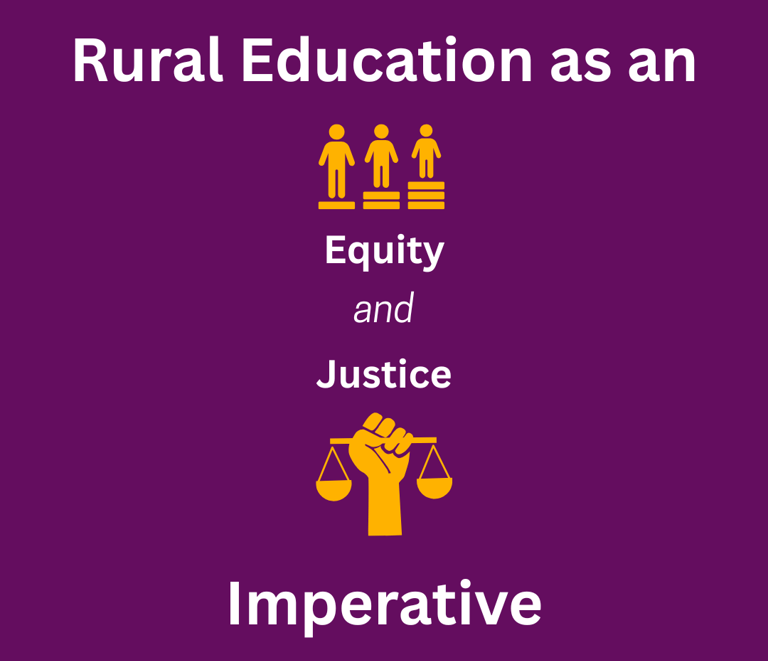Letters from the Field: Rural Education as an Equity and Justice Imperative
Education has long been heralded as the “great equalizer,” yet in many rural contexts it continues to function more as a deferred promise than a delivered reality. My recent reflections on Class Dismissed, particularly through the episode Letters from the Field—make it evident that rural education is not simply an education challenge, but a profound justice issue.
Dr. Somachi Kachikwu
8/16/20253 min read


1.Introduction
Education has long been heralded as the “great equalizer,” yet in many rural contexts it continues to function more as a deferred promise than a delivered reality. My recent reflections on Class Dismissed, particularly through the episode Letters from the Field—make it evident that rural education is not simply an education challenge, but a profound justice issue. Drawing on conversations with practitioners from Ghana, Nigeria, Uganda, and Zimbabwe, this piece situates rural education within broader debates on equity, teacher development, and systemic accountability.
2.Teacher Development and the Politics of Dignity
The repeated question—what do rural teachers need most? invites an answer that extends beyond resources to the very notion of teacher dignity. UNESCO (2019) highlights that rural teacher attrition rates remain significantly higher than their urban counterparts, largely due to professional isolation, inadequate housing, and limited career advancement. My discussions with rural educators affirmed this. Professional development, when available, is often generic and misaligned with the specific pedagogical challenges of multi-grade classrooms or trauma-affected learners.
Yet, teachers with a growth-oriented mindset innovate within these constraints, converting household items into science tools or leveraging oral traditions to teach literacy. Such examples reaffirm Carol Dweck’s (2006) growth mindset theory in highly resource-constrained settings, underscoring that systemic neglect is counterbalanced by local ingenuity.
3.Early Childhood Education: Foundations Neglected
The testimonies of Gyamesi Augustina, a kindergarten teacher in Ghana, underscore the fragile status of early childhood education (ECE) in rural communities. Despite Ghana’s 2019 curriculum reforms emphasizing play-based pedagogy, implementation has been uneven, with rural ECE often treated as an afterthought. Augustina’s reliance on her personal phone for visual aids illustrates a broader digital and material divide.
Research confirms that early gaps compound over time, and the automatic promotion policies in Ghana exemplify how systemic misalignment accelerates inequality. Without targeted investment in trained ECE teachers, diagnostic tools, and parental engagement, rural children enter primary school with foundational deficits that persist through their academic trajectories.
4.Education in Insecure Contexts: Learning Under Siege
The case of Mr. Pelem in Plateau State, Nigeria, reveals how conflict reshapes the meaning of education. In such contexts, school is not merely a site of cognitive development but of psychosocial healing and community resilience. Teachers are compelled to adopt trauma-informed pedagogies, balancing curriculum delivery with emotional support.
Literature on education in emergencies emphasizes the necessity of flexible, accelerated learning models and community-based protection mechanisms. My reflection aligns with this scholarship: true “access” to education cannot be measured solely by whether a school is technically open, but by whether students feel safe, supported, and able to learn.
5.STEM Education and the Innovation of Necessity
Zimbabwean teachers’ improvisation in STEM instruction exemplifies “pedagogies of necessity”. By repurposing jars, agricultural tools, and mobile phones, these educators demonstrate that scientific inquiry can thrive even outside formal laboratories. However, the structural inequities remain stark. UNESCO (2023) notes that over 60% of students in sub-Saharan Africa lack access to basic lab infrastructure.
Gender barriers add another layer. Cultural norms, domestic responsibilities, and inadequate menstrual health support disproportionately exclude girls from STEM pathways. Evidence-based strategies such as mentorship programs, female teacher visibility, and gender-responsive pedagogy (UNGEI, 2020) must be institutionalized rather than treated as isolated interventions.
6.Reflection: Beyond Sympathy, Toward Justice
The recurring narrative across these diverse contexts is clear: rural education is not a deficit to be pitied but a site of possibility demanding justice. Brilliance resides in rural classrooms, but opportunity does not. Addressing this disparity requires reframing rural education not as charity but as an equity mandate, one that implicates policy, community, and global development agendas.
As I reflect on the questions posed by educators, parents, and students themselves, I am convinced that transformation lies at the intersection of dignity for teachers, foundational support for learners, and systemic accountability from governments and international actors. To neglect rural education is to accept an inequitable distribution of futures.
7.Conclusion
Rural education must be recognized as central to educational equity debates. Teachers in these contexts illustrate resilience and creativity, but resilience alone should not be the strategy. If we are serious about education as a human right, then we must treat rural education not as the margins but as the measure of our collective commitment to justice.
References
Dweck, C. S. (2006). Mindset: The New Psychology of Success. Random House.
UNESCO. (2017). Early Childhood Care and Education: Global Report. Paris: UNESCO.
UNESCO. (2019). Global Education Monitoring Report: Migration, Displacement and Education. Paris: UNESCO.
UNESCO. (2022). Gender Report: Deepening the Debate on Gender and Education. Paris: UNESCO.
UNESCO. (2023). STEM Education in Africa: Policy Briefs. Paris: UNESCO.
Inspiration
Empowering educators to transform rural education together.
Call Us
Subscribe to Our Newsletter
Info@classdismissedpod.com
You can reach us at +1 (240) 918-1973
© 2025. All rights reserved.
Email Us
Stay updated with the latest episodes and educational insights from Dr. K.
